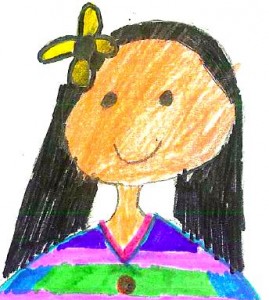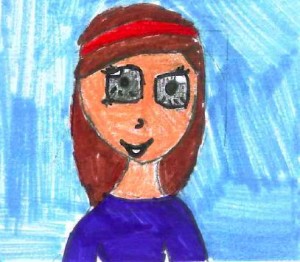
When I use the “g” word in staff-rooms, there’s always a chance that it may cause contention. Advocating for the needs of gifted students and focusing time & resources on enrichment is sometimes met with discomfort, or even defensiveness among teachers. I get it. The world of gifted & talented education can seem elitist. Teachers did not get into this business to focus on the clever kids who are “going to be fine, anyway”. We are working 12+-hour-days to change lives! When our weakest students master a new skill or understand an important concept, that is when we know we have made the world a better place. Of course, the notion that gifted students “are going to be fine, anyway” is a great misconception. If we don’t tailor education to meet needs, our brightest students can become underachievers or at-risk children with emotional or behavioural difficulties. In truth, gifted education is nothing more than quality differentiation. It simply requires that we design curriculum, pedagogy, resources and environments to suit learning readiness. It is about providing every student with learning engagements that are challenging and appropriate, so they may thrive at school.
That sounds pretty straight-forward, right? Well, let me introduce Miss Perfect.

Miss Perfect helps us understand why many gifted students are over-looked. She represents 90% of gifted students who walk through the classroom door. Her innate potential allows her to achieve at a higher level than her age-cohort, so in the classroom, she is a model student. She works hard, achieves great results, always does the right thing and is popular among staff and students. Can you name this child in your class? What’s wrong with this picture?
Here’s the problem. She’s playing us. At a very young age, she learned how the school system works. By watching and listening, she learned which behaviours and work samples receive positive feedback. She thrives on our approval, so much so that she is now reliant on the structure and directions we provide. She is rapidly losing the ability to think for herself, while mastering the art of getting a “gold star” with the least effort possible. She is so busy looking to us for guidance, that she is not developing her own interests or passions. She is not becoming an independent, motivated or creative person. Most alarmingly, she is developing a very fragile self-concept. While confident to approach tasks in which she has previously succeeded, she avoids taking risks, is terrified of failure and has limited resilience. On a daily basis, she plays it safe. The work she is producing, which we keep applauding, doesn’t come close to matching her true capabilities.

How can I be the teacher she needs?
The 4 Cs for helping Miss Perfect become Miss Autonomous
Challenge!
Raise the bar! Set tasks and expectations that are beyond her current capabilities. Design problems with no clear answer, or multiple solutions. Ask paradoxical questions. Set tasks where key pieces of information are missing. Support her emotionally, but challenge her to reach beyond the safe zone of thinking. Acknowledge her feelings of uncertainty, and watch as she gradually develops an internal sense of fulfilment, based on the joy of learning, rather than a desire to please the teacher or “get it right”.
Change Praise to Conversation
Stop praising the outcome. Break the cycle of approval. Avoid value judgments. Engage in dialogue, so she still receives attention, but is expected to discuss ideas, ask questions and express feelings instead of giving correct answers. Try replacing, “What a beautiful picture!”, with “Where did you get the idea?”. Let her decide the worth of the work, as she develops her own personal standards.
Choice
Provide tasks which are open-ended and include elements of choice and self-direction. Stand back as she learns to flex her creative muscle and become an independent learner.
Chill Out
Provide ample time for unstructured play, experimentation and exploration. Allow her to produce anything or nothing, as a result of this time. By taking away the system she knows so well, she will begin to see herself and the world around her differently. She will discover her own passions. Over time, capitalise on those experiences by encouraging in-depth inquiry into her interests.

Sincere thanks to Ms Lara Ronalds for this week’s inspiring dialogue about our own Miss Perfect. This child is so fortunate to have a teacher with a deep understanding of her needs and a family who works with the school to support her development.
Reference
- Betts, G. & Neihart M. (1988). Profiles of the gifted and talented. Gifted Child Quarterly: National Association for Gifted Children (NAGC).
- See Neihart & Betts’ (2010) updated matrix of gifted profiles here.


